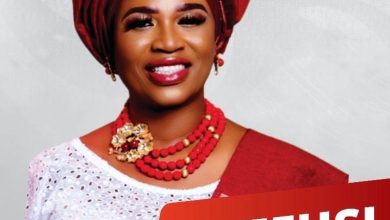
|
Getting your Trinity Audio player ready...
|
On December 11, 2024, the Stand To End Rape (STER) initiative organised a landmark Townhall Meeting at the Watercress Hotel, Ikeja, Lagos. The event, themed “Women in Governance: Paving the Way for an Inclusive Future in Nigeria,” was held to amplify women’s political participation ahead of the 2027 elections.
According to research, 51% of Nigerian women participate in voting during elections, yet less than 7% held political positions in 2023. Further, in the recent gubernatorial elections in Ondo state in November 2024, no woman was represented in the post of governorship aspirant, while only three women were represented in the deputy governor position. In the current administration, only 7 out of 48 ministers are women despite promises made to bridge the gap between gender equality.
Thus, the townhall meeting convened stakeholders from various sectors, including political experts, journalists, and advocates for gender equality, and was sponsored by the German Embassy.
A speaker at the initiative gave a brief presentation and emphasised the importance of early preparation for the 2027 elections. “We don’t just want to come up in 2027 and say we need women. Let’s start now. Better preparation leads to better results,” she stated.
Citing examples of countries like Rwanda, which boasts the highest number of female political representatives in the continent, she also spotlighted the Special Seats Bill, a pivotal legislative effort to address the underrepresentation of women in Nigeria’s political system.
Initially introduced in the 9th National Assembly by Hon. Nkeiruka Onyejeocha of Abia state and reintroduced in the 10th National Assembly by Deputy Speaker Rt. Hon. Benjamin Kalu and 12 co-sponsors, the bill proposes the creation of 74 seats in the National Assembly and 108 seats in State Houses of Assembly exclusively for women. Despite progressing to the committee review stage, the bill has faced resistance rooted in cultural and religious biases that question women’s roles as leaders.
According to STER’s survey, some of the resistance to the bill was because it was “perceived as an attack on men.” The speaker further stated that women must be present at political decision-making tables to promote gender inclusivity.
“When a particular group (men) fill up the spots to make decisions, they will ignore the other groups and only focus on decisions that benefit them. But when there’s inclusivity, they’ll be able to make decisions that benefit everybody, which is what women’s representation can do for us,” she said.
In her keynote address, another speaker, Morayo Afolabi-Brown, a journalist and television host of the YourView show on TVC, stressed the critical role of legislative advocacy in bridging the gender gap in Nigerian politics. She highlighted the importance of media involvement, stating,
“The truth is that we can’t do anything without the laws, and a major problem is that people won’t read them. Media and public advocacy are essential to push for the passage of laws supporting women’s representation.”
The town hall meeting, which also featured a panel session, had speakers unanimously call for greater advocacy, communication, and collaboration with male allies to build momentum for legislative reforms and ensure gender inclusivity.
The town hall meeting concluded with a strong call to action for all stakeholders—public and private organisations, the media, and the wider society—to actively champion the inclusion of women in governance and create a more equitable future for Nigeria.






